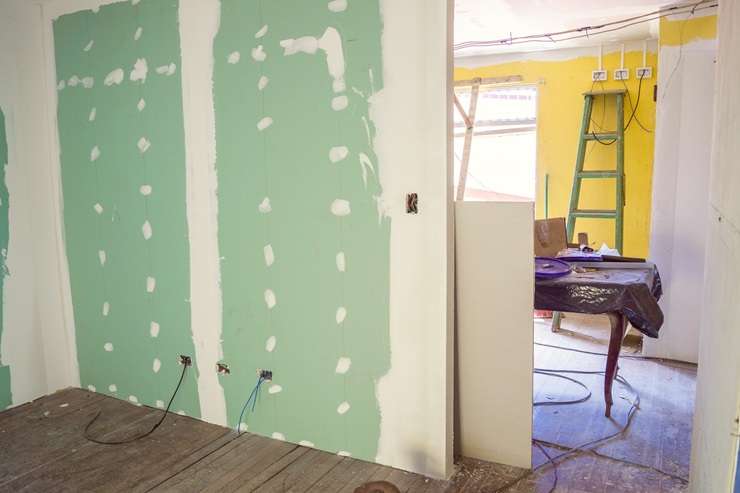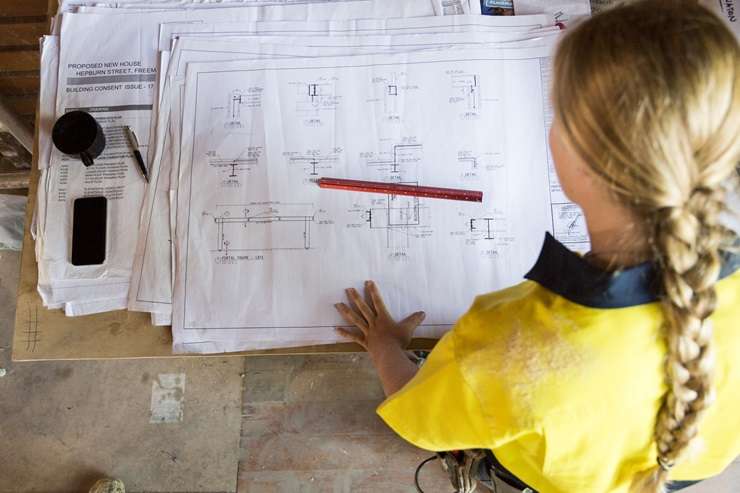The arrival of additional children, or the need to house older relatives sometimes drives desires to upsize.
In some cases, extending, or clever rejigging of space can be a better outcome than buying a bigger home, although experts also warn homeowners that renovations don’t always add the additional capital that they might expect.
Renovation guru Mark Trafford, co-owner of MTP Renovations and Maintenance company, said anyone considering building an extension needed to shop around in their local area and work out how much it would cost to buy a home with the additional bedrooms and bathrooms, or other space needed.
“If you are in a $1m three-bedroom, one-bathroom house, and a four-bedroom, two-bedroom is $1.3m, that’s $300,000 you’ve made on the property [after the renovation]. A good building company should be able to tell an owner what their renovation should cost.”
Start your property search
Discover more:
- Mansion estate with 23 bedrooms for sale - should buyers just demolish the lot?
- ‘Oh s***! I can’t do that’: Lots of choice, but money woes are thwarting buyer plans
- The NZ suburbs with the wildest turnaround in house prices
Garreth Collard, accountant at EpsomTax.com, said it’s hard to measure the return on investment (ROI) when it comes to satisfaction and enjoyment. “Or in practicality and time-saving. Again, hard to say in definitive number terms,” he said.
“However, thinking about future possible [capital] gains from upsizing, the rule of thumb is that each bedroom adds $100,000 to the price of a house. So potentially if you add two bedrooms you just added $200,000 to your house. With careful planning, a portion of DIY and choice of materials, you could do this for a lot less.”
Some extensions do pay off for the homeowners. Global Finance head of mortgage Aseem Agarwal cited clients who loved their Flatbush home, and didn’t want to move, so borrowed to build an extension. “They were familiar with the neighbourhood, amenities were close. So, they contacted a builder and architect and expanded the house from two-bedroom to a four-bedroom house,” said Agarwal. The work cost less than $300,000 and increased the value of the home by at least $400,000, he said.
Whatever homeowners choose to do, it’s a good idea to seek professional advice, said Mark Hooper, building consultant at Classic Builders. “I would recommend working with a professional to help guide you through the planning phase, so you are better informed and prepared for the journey ahead.

Sometimes homeowners can adapt existing space to add an extra bedroom. Photo / Getty Images
“Renovations can be a risky business as you never quite know what is happening ‘behind the wall’. There are so many potential variables and unknowns with renovations. The age of the home, council requirements, bringing the home up to current building code standards, hidden costs here and there, etc.
“If you have the opportunity, building brand new is always going to be the better option because you can customise the plans to suit you from the start, everything is brand new, you lock in the build cost, and you move into a healthy home with a warranty that gives you peace of mind for the next 10 years.”
As well as builders, it’s worth speaking to real estate agents before you start – especially if you’re thinking about capital gain.
Ray White agent Dylan Turner said homeowners don’t always consider how easy their renovated home will be to sell. Owners might want to add extra bedrooms, but then find that no one wants to buy a six-bedroom home with one bathroom and no off-street parking. If the home’s purpose has been changed, it’s a big barrier to a buyer falling in love with the home, he said. “Both from an emotional perspective and practical perspective.”
Common upgrades: What you need to know
Extra bedrooms are the most commonly requested feature when it comes to upsizing. While building out or up is often the only option available, homeowners would do well to talk to an architect before embarking on a project as they may be able to come up with a solution within the existing footprint of the house.
Sometimes the easiest way to add bedrooms to a home is simply reallocating exiting space – i.e. turning the dining room or second lounge, or rumpus room into a bedroom. However, those looking to turn a garage into a living space conversion should be aware they will need building consents.

Getting an expert to solve your space problems will ensure you don't blow the budget. Photo / Getty Images
Rejigging the interior – e.g. turning two big rooms into three smaller ones – can also yield results, although it can be costly. Adding a wall might can cost between $5000 to $10,000 (much more if council consents are needed. “A lot of people won’t buy anything that has unpermitted work that is not on the LIM, even a wall,” Trafford said. Plumbing costs should be if, for example, a laundry is being turned into a bedroom or ensuite, and clothes washing moved to the kitchen, bathroom, or garage.
In many case, building an extension is the best – and possibly only – solution for those with space problems.
Pushing out from the back of the house is the most common way to extend but there are other options. That can include adding staircases and converting the loft into liveable space, building up, or adding another storey underneath by excavating. Works such as these will require architects and planning permission in most cases.
- Click here to find properties for sale
* This article was created in partnership with Classic Builders













































































